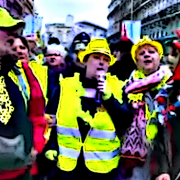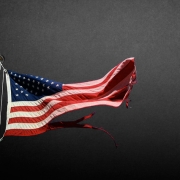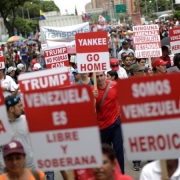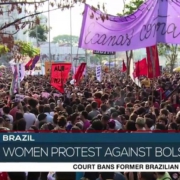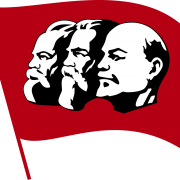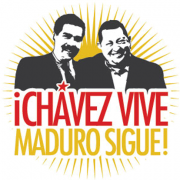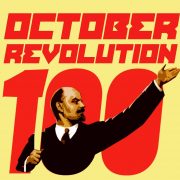More than 120 Filipinos and their international friends in Europe gathered to celebrate 50 years of struggle for social and national liberation in the Philippines on 31 March 2019. Billed as a “Tapestry of Resistance,” the event in Amsterdam, the Netherlands resonated with many other gatherings in the Philippines and overseas that commemorated the 50th anniversary of the founding of the New People’s Army.
Read moreWorldwide scope (Global regions as sub-categories; see also Tags for specific countries and special regions)
Professor Jose Maria Sison, chairperson of the International League of Peoples’ Struggle (ILPS), said that it was “hysterical fear of white genocide” that drive Australian mass murderer Brendan Tarrant to kill 50 Muslim worshipers in a mosque in Christchurch, New Zealand on March 15. He further added that “the white victim complex and the hysterical assertion of white supremacy are two sides of the same coin” that led to the mass shooting. Full text of the ILPS chairperson’s statement follows.
Monopoly Capitalism Is the Cause of Mass Migration
and the White-Victim and White-Supremacy Complex
By Prof. Jose Maria Sison
Chairperson, International League of People’s Struggle
17 March 2019
In his 74-page manifesto, the Australian mass murderer Brendan Tarrant raves about the “great replacement” of white people by non-white peoples and blames the liberals for advocating mass migration, white displacement and cultural diversity in the same perverted way that the Norwegian mass murderer Anders Brevik blames “cultural Marxism”.
The hysterical fear of white genocide drove Tarrant to commit the massacre of at least 49 Muslim worshipers in a mosque in Christchurch, New Zealand. The victims came from various underdeveloped countries as well as from war-torn countries. The white victim complex and the hysterical assertion of white supremacy are two sides of the same coin that leads to the atrocity.
White people in the developed countries are themselves victimized by the monopoly bourgeoisie but are misled by the demagogues of the capitalist system to believe that the migrants, especially the Muslims, are to blame for the erosion of the wage and living conditions of the white working class and middle class.
The neoliberal strategists, think tanks, academe and mass media of the monopoly bourgeoisie obscure the fact that economic and social conditions are becoming worse for the working class and even for the middle class because of the crisis of overproduction and the unsustainable abuse of credit.
Neoliberalism and the adoption of higher technology have pressed down wages, eroded social benefits and services and have increased unemployment and poverty among the whites and non-whites. Those few whites turned hysterical and murderous by a combination of white-victim complex and white supremacy do not think much beyond their personal and national egoism.
They are kept ignorant of the fact that the mass migration from the underdeveloped to the developed countries is the result of the policies of the monopoly bourgeoisie to avail of cheap labor, to keep the underdeveloped countries more underdeveloped and to wage wars of aggression to put down anti-imperialist governments and popular movements asserting national independence and demanding broader democracy, social justice and industrial development.
As a result of decolonization due to the direct and indirect effects of armed national liberation movements, the imperialist countries have used mass migration towards them since the 1970s to make up for the loss of colonies and semicolonies. To make up for the tendency of the profit rate to fall in their own home grounds, they have also utilized neocolonialism to cause the further underdevelopment of former colonies and semicolonies to maximize profits. The widening mass unemployment and poverty drive the people to emigrate.
And whenever certain governments and revolutionary movements arise and assert national sovereignty, nationalize the economy and promote industrial development, the imperialist countries unleash campaigns of destabilization for regime change and wars of aggression, which are the biggest and worst form of terrorism. Thus, the imperialist countries themselves have been culpable for the increasing number of both political and economic refugees since the 1980s, especially from the war-torn countries in Asia, Africa and Latin America.
Whenever the monopoly bourgeoisie finds it too difficult or is frustrated in using liberal democracy or social democracy to disarm and sedate the working class, it resorts to the outright use of the most reactionary ideas and sentiments to obscure the roots of the crisis of monopoly capitalism, to mislead the broad masses of the people and the use the grossest form of violence and deception to suppress the anti-imperialist and democratic mass movements which aim for national liberation, people’s democracy and socialism.
We are living today in a crisis-stricken world capitalist system in which only one percent of the population, the top circle of the monopoly bourgeoisie, own 50 percent of the world’s wealth and only 10 percent own 75 percent. The gross social inequality means the increasing polarization of all societies and the intensification of the anti-imperialist and class struggle.
Under these circumstances the monopoly bourgeoisie unleashes all kinds of monsters and atrocities, including state terrorism and private terrorism of white supremacists, in order to counter the rise of revolutionary consciousness and movements among the proletariat and people in every country and on a global scale.
More than ever, it is necessary for the revolutionary parties of the proletariat to arise and strengthen themselves in order to promote proletarian internationalism among the workers of the world as well as international solidarity among the broad masses of the people of the world in order to overcome and defeat all the strategies and tactics of the monopoly bourgeoisie to divide the white and non-white workers and peoples of the world with the use of chauvinism, xenophobia, racism and fascism. ###
Professor Jose Maria Sison, chairperson of the International League of Peoples’ Struggle (ILPS), favorably compares France’s yellow vest movement “with the May 1968 mass protests in France, especially with regard to militancy and opposition to the capitalist establishment.” He says that the yellow-vest protestors “enjoy the support of the broad masses of the people” who condemn French neoliberal banker turned president Emmanuel Macron. While the movement “suffers from the same excessively horizontalist populist character” and the lack of revolutionary proletarian leadership, Sison emphasizes that the “yellow vest movement is welcome and praiseworthy for taking up the just grievances of the working class and the middle class and exposing the grave ills of the oppressive and exploitative capitalist ruling system.” Full text of the ILPS chairperson’s statement follows.
On the yellow vest movement in France
By Prof. Jose Maria Sison
Chairperson, International League of Peoples’ Struggle
March 19, 2019
On 17 November 2018, 300,000 people of the working class and the middle class mainly from the suburban and rural areas of France rose up in militant mass demonstrations to protest the fuel tax hike and rising fuel prices. Characteristically, they wore the yellow vest to signal their economic and social distress. They had been inspired by an online petition signed by almost one million people.
Eighteen mass demonstrations, centered in Paris and carried out nationwide, broke out up to the most recent one of March 16, 2019 dubbed as “The Ultimatum”. The just demands of the yellow vest movement have expanded from the lowering of fuel taxes to the reintroduction of the solidarity tax on wealth, increase of the minimum wage, expansion of social services, the implementation of citizen’s initiative referendums and the resignation of President Macron and his regime.
The Macron regime has responded with a heavy hand by launching physical attacks by the police on the demonstrators with the use of water cannons, tear gas grenades, flash balls and baton charges. It is but just that the demonstrators have fought back with the use of sticks, cobblestones, car blockades, control of roads and roundabouts, destruction of traffic surveillance cameras, the burning of the expensive cars of the big bourgeois and mass entries to the upper class restaurants and shops.
The yellow vest demonstrators enjoy the support of the broad masses of the people who condemn Macron, the investment banker turned president, as the promoter and enforcer of the neoliberal policy which favors the big bourgeoisie and its best-paid executives at the expense of the workers and the rural people. They are enraged by the use of police violence during mass actions and by the false promises made by Macron before and after every mass action.
The yellow vest movement has influenced similar mass movements in Europe and elsewhere in the world, whose participants wear the yellow vest and raise demands against the tax and other exploitative policies of the big bourgeois government. Most of the influenced movements have a benign and progressive character directed against the exploitative policies of bourgeois governments. But a few are directed against migrant workers and others unrelated to the monopoly bourgeoisie.
The yellow vest movement may be favorably compared with the May 1968 mass protests in France, especially with regard to militancy and opposition to the capitalist establishment. But it suffers from the same excessively horizontalist populist character and the lack of leadership from a revolutionary party of the proletariat. It may also be compared with the Occupy Movement of recent memory, which enjoyed popular support for a certain period. But this fizzled out for lack of leadership from a revolutionary party of the proletariat.
At any rate, such a phenomenon as the yellow vest movement is welcome and praiseworthy for taking up the just grievances of the working class and the middle class and exposing the grave ills of the oppressive and exploitative capitalist ruling system. It shows that there is a wide and deepgoing mass base of social discontent and resistance that the Marxist-Leninist revolutionary party of the proletariat can avail of in winning the battle for democracy and aiming for the socialist revolution.###
Source URL: https://josemariasison.org/on-the-yellow-vest-movement-in-france/
By Antonio Tujan Jr.
Crosscurrents 30 |7 March 2019
That the US should warn the Duterte government to be wary over concluding treaties with China just shows that the world is no longer under a single hegemonic global power. Before, the US would not simply countenance a former colony of brown Americans to welcome the Chinese. Nor would it allow any president before Duterte to make overtures to everyone, most specially the communist regime of China.
The rise of China as the strongest economy overall puts the US at a disadvantage even though the dollar still reigns supreme as a global currency standard. It would be stupid for anyone, must less the government, not to recognize that opportunity to develop friendly relations along with the benefits of economic cooperation. Not to mention the geopolitics of the West Philippine Sea dispute.
Of course, we assume that the Duterte government is wary of the pros and cons in dealing with China, of its economic and geopolitical interests on the Philippines. But Trump is playing big brother politics to even warn the Philippines or the Duterte government as if the latter does not know its business. This warning smacks of US imperialism, on the decline, especially after China has overtaken it.
Russia has emerged from the ashes of the collapse of the Soviet Union and recovered its military might, still not as strong as that of the US but sufficient enough to challenge the US. Russian official claims that US and Russia nuclear parity has been broken with a new generation of Russian nuclear military technology. This lead Trump to break off its agreement on intermediate range missiles in Europe.
The parity in economic and military strength with emergence of China and Russia translates to the tremendous weakening of US political hegemony overall. This phenomenon has reported by many diplomatic quarters especially from intergovernmental organizations like the UN as early as 2015 when several agreements and treaties could no longer be concluded easily with objections from China and India and the realignments in the UN such as the emergence of G77+China.
IBON International has monitored developments over the decade and reported in its International Situation Briefings in 2013 the emergence of this new phenomenon. This has become known internationally in 2015 as the new multipolar world order – the US is no longer the sole global hegemon after the end of the Cold War and the collapse of the Soviet Union. US hegemonic power is starting to crumble in a multipolar world full of conflict.
Does this phenomenon mean the emergence of other hegemonic powers such as China and Russia? Not necessarily. There are several economic, political and military factors that can operate one way or the other to create new hegemons. Several aspects and factors than can decide this include investment, trade, conflicts, military build up, diplomacy and alliances, etc.
The US continues to use what is left of its political, economic and military strength and existing agreements to preserve what is left of the framework of its hegemonic power to prevent what can be a catastrophic collapse of the capitalist system. Its stranglehold on the international monetary system through the IMF and the worldwide currency peg to the dollar is under tremendous challenge whether from the strength of the yuan/Chinese economy or the euro transactions as pragmatic solutions to address unreasonable economic sanctions on several countries like Venezuela, Iran or North Korea under US political economic attack.
US unilateralism under Trump is politically, economically and diplomatically dangerous for the US. Trade wars with the European Union, China or Canada easily backfires when the US is on the defensive in the first place. These actions weaken the international neoliberal agenda and leaves the WTO and similar agreements severely frayed. These reflect the severe contradictions faced by monopoly capital in the face of a full decade of no growth since the collapse of 2008. Since 2011 when the world emerged from the worst depression since the 1930s, it still faces depressionary features of a stagnant world economy overall.
Behind the US-initiated trade wars is its intention to revive its flagging industry but China has long overtaken the US industrial development and high technology. The irony of it all is that China is so far ahead in the game that it produces and exports robots to run the new factories the US wants to build. (More in Part 2)##
28 February 2019
Antonio Tujan Jr. |Crosscurrents 29, Philippine Tribune
28 February 2019
The US strategy to bring down the Bolivarian government of Nicolas Maduro was to select Juan Guaido as a self-proclaimed president coming out of the defunct national assembly of Venezuela. Around 40 US allies from the West and some Latin American countries belonging to the so-called Lima group were quick to recognize Guaido, giving Maduro a 23 February deadline for Maduro to step down and for Guaido to call presidential elections.
Read morePRISM Editor’s note: This statement by the International League of People’s Struggle, originally circulated on 2 November 2018, was reissued by the Office of the ILPS Chairperson on 4 November with slight revisions. We are posting this reissued version.
Read more7-7. On the struggle to consolidate Soviet power, the peace of Brest-Litovsk, and the Seventh Party Congress
In the course of a few months, from the end of 1917 to the middle of 1918, a series of measures to consolidate, defend, and advance the gains of the socialist revolution were carried out. These measures undermined the very root of the power of the bourgeoisie and the landlords, the reactionary officials and the counterrevolutionary parties. Such measures strengthened the position of the new Soviet government within the country.
The International League of Peoples’ Struggle (ILPS) reiterated its solidarity with “the government and people of Venezuela in their heroic struggle for national independence and socialism against US imperialism and its lackeys” within the country.
In the statement, ILPS chairperson Professor Jose Maria Sison reviewed the successes of “the Bolivarian revolutionary struggle” in Venezuela under the leadership of its late president, Hugo Chavez. “The people of Venezuela are loyal to and love Comrade Hugo Chavez because he led them to assert national independence and to aim for socialism,” Sison said. Read more
The Partito dei Comitati di Appoggio alla Resistenza – per il Comunismo (CARC Party, Italy) participated in the Amsterdam conference on the 100th anniversary of the October Revolution on 23-24 September 2017. The following is the full text of the CARC Party’s intervention, which was presented by Comrade Paolo Babini. (Subheads and footnote is by PRISM editors.) Read more
MANILA, The Philippines—Novermber 7 this year, which marks the centennial of the Great October Socialist Revolution under the leadership of the Bolsheviks in Russia, reverberated with added fullness in this southeast Asian archipelago with a long-standing proletarian-led mass movement.
Read more
| M | T | W | T | F | S | S |
|---|---|---|---|---|---|---|
| 1 | 2 | 3 | 4 | 5 | 6 | 7 |
| 8 | 9 | 10 | 11 | 12 | 13 | 14 |
| 15 | 16 | 17 | 18 | 19 | 20 | 21 |
| 22 | 23 | 24 | 25 | 26 | 27 | 28 |
| 29 | 30 | |||||
Pages
Categories
- ANZ-Oceania
- Armed struggles
- Articles
- Asia-Pacific
- Climate and environment
- Culture and propaganda
- Culture, propaganda and ideology
- East Asia
- Europe
- Events calendar
- Frontpage Article
- General
- Geopolitics and the state
- Global capitalism
- Global economy
- Global events
- History
- Joma Sison
- Latin America
- Marx Bicentennial
- Marxism-Leninism
- Mass struggles
- Middle East
- Military affairs
- Multimedia
- News and articles
- North America
- October Revolution Centennial
- Organizations
- Other social sectors
- Papers and monographs
- Paris Commune 150
- Peasantry
- Philosophy
- References
- Russia and Central Asia
- Social issues
- Socialism
- Socialist theory
- South and West Asia
- Strategy and tactics
- The movement
- The world
- Trotskyism
- Uncategorized
- Webinars
- Working class
- Youth
Archive
- February 2023
- December 2022
- November 2022
- October 2022
- September 2022
- May 2022
- September 2021
- April 2021
- March 2021
- December 2020
- November 2020
- September 2020
- August 2020
- July 2020
- June 2020
- May 2020
- April 2020
- March 2020
- September 2019
- April 2019
- March 2019
- February 2019
- November 2018
- June 2018
- May 2018
- March 2018
- December 2017
- November 2017
- October 2017
- September 2017
- July 2017
- May 2017
- April 2017
- March 2017
- February 2017
- January 2017
- October 2016
- July 2016
- June 2016
- May 2016
- April 2016
- March 2016
- February 2016
- January 2016
- November 2015
- September 2015
- June 2015
- March 2015
- February 2015
- November 2014
- September 2014
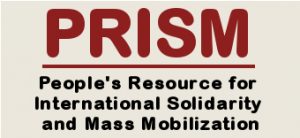
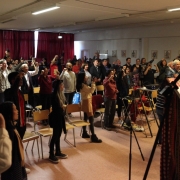 NDFP
NDFP
